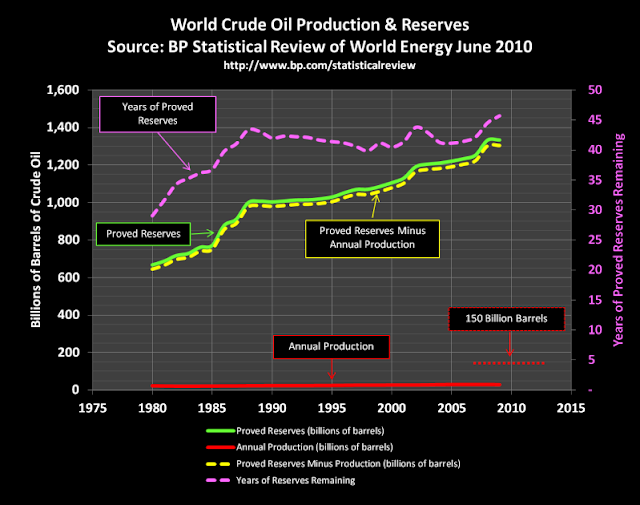Back in 1980, the great libertarian economist, Julian Simon, and the prepetually wrong Malthusian biologist, Paul Erlich, entered into a little wager regarding population growth and resource scarcity. They decided on using the inflation-adjusted prices of five metals to decide the bet. Simon allowed Erlich to pick the five metals. If the 1990 prices were higher, Erlich would win. If they were lower, Simon would win. With the help of a fellow perpetually wrong Malthusian, John P. Holdren, Erlich selected chromium (Cr), copper (Cu), Nickel (Ni), tin (Sn) and tungsten (W). Julian Simon won the bet. _WattsUpWithThatThe article linked above proceeds to look at price and production trends for these 5 metals, in order to determine whether Julian Simon was lucky, or good.
All images via Watts Up With That!?!
Prices of the metals appear remarkably stable when adjusted for inflation. But there is more to the story than this.
Over time, production of these 5 metals continues to rise. Even more interestingly, the price to production index of the metals has declined consistently. This is an indicator of expected stability of production.
Not only are the prospects for future economical metals production quite good, but the same is true for the crude oil and liquid hydrocarbons sectors. Proved crude oil reserves continue to go up, despite sustained high production rates.
But here is the bad news for peak oilers and other doomers: Technologies which will provide substitution liquid fuels such as bitumens to liquids, gas to liquids, coal to liquids, and even biomass to liquids, etc, are developing much more quickly than most prognosticators would have though possible.
Finally, world food supply is rising step for step with world population. This is logical, since the planet Earth has an incredibly expandable capacity for biological production, which has barely been tapped to this point.
Overall, this is a fairly optimistic look at the future of planetary resources. For a more extensive look at the thinking behind economist Julian Simon's famous bet with doomer Paul Erlich, go to the free online book, The Ultimate Resource II.
There you will learn that human ingenuity is the ultimate resource which determines the scarcity or abundance of the other important resources necessary for an abundant future.






